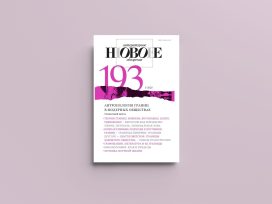The Satanic Verses was, Salman Rushdie said in an interview before publication, a novel about “migration, metamorphosis, divided selves, love, death”. It was also a satire on Islam, “a serious attempt”, in his words, “to write about religion and revelation from the point of view of a secular person”. For some that was unacceptable, turning the novel into “an inferior piece of hate literature” as the British-Muslim philosopher Shabbir Akhtar put it.
Within a month, The Satanic Verses had been banned in Rushdie’s native India, after protests from Islamic radicals. By the end of the year, protesters had burnt a copy of the novel on the streets of Bolton, in northern England. And then, on 14 February 1989, came the event that transformed the Rushdie affair – Ayatollah Khomeini issued his fatwa. “I inform all zealous Muslims of the world,” proclaimed Iran’s spiritual leader, “that the author of the book entitled The Satanic Verses – which has been compiled, printed and published in opposition to Islam, the prophet and the Quran – and all those involved in its publication who were aware of its contents are sentenced to death.”
Thanks to the fatwa, the Rushdie affair became the most important free speech controversy of modern times. It also became a watershed in our attitudes to freedom of expression. Rushdie’s critics lost the battle – The Satanic Verses continues to be published. But they won the war. The argument at the heart of the anti-Rushdie case – that it is morally unacceptable to cause offence to other cultures – is now widely accepted. In 1989, even a fatwa could not stop the continued publication of The Satanic Verses. Salman Rushdie was forced into hiding for almost a decade. Translators and publishers were assaulted and even murdered. In July 1991, Hitoshi Igarashi, a Japanese professor of literature and translator of The Satanic Verses, was knifed to death on the campus of Tsukuba University. That same month, another translator of Rushdie’s novel, the Italian Ettore Capriolo, was beaten up and stabbed in his Milan apartment. In October 1993, William Nygaard, the Norwegian publisher of The Satanic Verses, was shot three times and left for dead outside his home in Oslo. None of the assailants was ever caught. Bookshops in America and elsewhere were firebombed for stocking the novel. It was rumoured that staff at the Viking Penguin headquarters in New York were forced to wear bomb-proof vests. Yet Penguin never wavered in its commitment to Rushdie’s novel.
Today, all it takes is a letter from an outraged academic to make publishers run for cover: earlier this year, Random House torpedoed the publication of a novel that it had bought for $100,000 for fear of setting off another Rushdie affair. Written by the American journalist Sherry Jones, The Jewel of Medina is a historical romance about Aisha, Mohammed’s youngest wife. In April 2008, Random House sent galley proofs to writers and scholars, hoping for cover endorsements. One of those on the list was Denise Spellberg, an associate professor of history and Middle East studies at the University of Texas. Jones had used Spellberg’s work as a source for her novel. Spellberg, however, condemned the book as “offensive”. She phoned an editor at Random House, Jane Garrett, to tell her that the book was “a declaration of war” and “a national security issue”. Spellberg apparently claimed that The Jewel of Medina was “far more controversial than The Satanic Verses or the Danish cartoons”, that there was “a very real possibility” of “widespread violence” and that “the book should be withdrawn ASAP”.
The American academic Stanley Fish, writing in the New York Times, rejected the idea that the Random House decision to pull the novel amounted to censorship. It is only censorship, he suggested, when “it is the government that is criminalising expression” and when “the restrictions are blanket ones”. Random House was simply making a “judgment call”.
There is indeed a difference between a government silencing a writer with the threat of legal sanction or imprisonment and a publisher pulling out of a book deal. It is also true that other publishers picked up Jones’s novel, including Beaufort in America, and Gibson Square in Britain. But Fish misses the point about the changing character of censorship. The Random House decision is not a classical example of state censorship. It is, however, an example of the way that free speech is becoming more restricted – without the need for such overt censorship. The directors of Random House had every right to take the decision they did. But the fact that they took that decision, and the reasons for which they did, says much about how attitudes to free speech have changed over the past 20 years. In the two decades between the publication of The Satanic Verses and the pulling of The Jewel of Medina the fatwa has effectively been internalised.
After Random House dropped The Jewel of Medina, Sherry Jones’s agent tried other publishers. No major house was willing to take the risk. Nor is it just publishers that worry about causing offence. These days theatres savage plays, opera houses cut productions, art galleries censor shows, all in the name of cultural sensitivity. “You would think twice, if you were honest,” said Ramin Gray, the associate director at London’s Royal Court Theatre, when asked if he would put on a play critical of Islam.
“You’d have to take the play on its individual merits, but given the time we’re in, it’s very hard, because you’d worry that if you cause offence then the whole enterprise would become buried in a sea of controversy. It does make you tread carefully.” In June 2007, the theatre cancelled a new adaptation of Aristophanes’s Lysistrata, set in Muslim heaven, for fear of causing offence. Another London theatre, the Barbican, carved chunks out of its production of Tamburlaine the Great for the same reason, while Berlin’s Deutsche Oper cancelled a production of Mozart’s Idomeneo in 2006 because of its depiction of Mohammed. That same year, London’s Whitechapel Art Gallery removed life-size nude dolls by surrealist artist Hans Bellmer from a 2006 exhibit just before its opening, ostensibly for “space constraints”, though the true reason appeared to be fear that the nudity might offend the gallery’s Muslim neighbours. Tim Marlow of London’s White Cube art gallery suggested that such self-censorship by artists and museums was now common, though “very few people have explicitly admitted [it]”.
Islam has not been alone in generating such censorship. In 2005, Britain’s Birmingham Repertory Theatre cancelled a production of Bezhti, a play by the young Sikh writer Gurpreet Kaur Bhatti, that depicted sexual abuse and murder in a gurdwara. There had been protests from community activists who had organised demonstrations outside the theatre. In the wake of those protests, Ian Jack, then editor of the literary magazine Granta, nailed his colours to the cause of artistic self-censorship; a necessity, he believed, in a plural society. “The state has no law forbidding a pictorial representation of the prophet,” he wrote. “But I never expect to see such a picture.” An individual might have the abstract right to depict Mohammed, but the price of such freedom was too high when compared to the “immeasurable insult” that the exercise of such a right could cause – even though “we, the faithless, don’t understand the offence”. And that a year before the cartoon controversy.
All this reveals how successful the fatwa has been, not in burying The Satanic Verses, but in transforming the landscape of free speech. From the Enlightenment onwards, freedom of expression had come to be seen as not just as an important liberty, but as the very foundation of liberty. “Give me the liberty to know, to utter, and to argue freely according to conscience, above all liberties,” wrote John Milton in Areopagitica, his famous “speech for the liberty of unlicenc’d printing”, adding that “He who destroys a good book destroys reason itself.” All progressive political strands that grew out of the Enlightenment were wedded to the principle of free speech.
Of course, few liberals advocated absolute freedom of expression. Most accepted that in certain circumstances speech could cause harm and so had to be restricted. The most celebrated expression of such a view came in a judgment given by the American Supreme Court judge Oliver Wendell Holmes who in 1919 pointed out, “The most stringent protection of free speech would not protect a man falsely shouting fire in a theatre and causing a panic.” What actually constitutes the political and social equivalent of yelling fire in a crowded theatre has been the matter of fierce debate. Politicians and policy makers have, over the years, cited a whole host of harms as reasons to curtail speech – threat to national security, incitement to violence, promotion of blasphemy, the undermining of morality or the spread of slander or libel. Milton himself opposed the extension of free speech to Catholics on the grounds that the Catholic Church was the biggest obstacle to the extension of freedom and liberty.
Yet, however hypocritical liberal arguments may sometimes have seemed, and notwithstanding the fact that most free speech advocates accepted that the line had to be drawn somewhere, there was nevertheless an acceptance that speech was an inherent good, the fullest extension of which was a necessary condition for the elucidation of truth, the expression of moral autonomy, the maintenance of social progress and the development of other liberties. Restrictions on free speech were seen as the exception rather than the norm.
It is this idea of speech as intrinsically good that has been transformed. Today, in liberal eyes, free speech is as likely to be seen as a threat to liberty as its shield. “Speech is not free,” as the lawyer Simon Lee put it in his book The Cost of Free Speech, written in the wake of the Rushdie affair. “It is costly.” By its very nature, many argue, speech damages basic freedoms. Hate speech undermines the freedom to live free from fear. The giving of offence diminishes the freedom to have one’s beliefs and values recognised and respected. In the post-Rushdie world, speech has come to be seen not as intrinsically good, but as inherently a problem, because it can offend as well as harm, and speech that offends can be as socially damaging as speech that harms. Speech, therefore, has to be restrained by custom, especially in a diverse society with a variety of deeply held views and beliefs, and censorship (and self-censorship) has to become the norm. “Self-censorship,” as the philosopher Shabbir Akhtar put it at the height of the Rushdie affair, “is a meaningful demand in a world of varied and passionately held convictions. What Rushdie publishes about Islam is not just his business. It is everyone’s – not least every Muslim’s – business.”
Increasingly, western liberals have come to agree. Whatever may be right in principle, many now argue, in practice one must appease religious and cultural sensibilities because such sensibilities are so deeply felt. We live in a world, so the argument runs, in which there are deep-seated conflicts between cultures embodying different values, many of which are incommensurate, but all of which are valid in their own context. The controversy over The Satanic Verses was one such conflict. For such diverse societies to function and to be fair, we need to show respect for other peoples, cultures, and viewpoints. Social justice requires not just that individuals are treated as political equals, but also that their cultural beliefs are given equal recognition and respect. The avoidance of cultural pain has therefore come to be regarded as more important than what is often seen as an abstract right to freedom of expression. As the British sociologist Tariq Modood has put it, “If people are to occupy the same political space without conflict, they mutually have to limit the extent to which they subject each other’s fundamental beliefs to criticism.”
In fact, the lesson that we should draw from the Rushdie affair is the very opposite. Critics of Rushdie no more spoke for the Muslim community than Rushdie himself did. Both represented different strands of opinion within Muslim communities. These days the radical, secular clamour, which found an echo in The Satanic Verses, has been reduced to a whisper. In the 1980s, however, it beat out a loud and distinctive rhythm within the Babel of British Islam. Rushdie’s critics spoke for some of the most conservative strands. The campaign against The Satanic Verses was not to protect the Muslim communities from unconscionable attack from anti-Muslim bigots, but to protect their own privileged position within those communities from political attack from radical critics, to assert their right to be the true voice of Islam by denying legitimacy to such critics. They succeeded at least in part, because secular liberals embraced them as the authentic voice of the Muslim community.
Far from mutually limiting the extent to which we subject each other’s beliefs to criticism, we have to recognise that in a plural society it is both inevitable and important that people offend others. Inevitable, because where different beliefs are deeply held, clashes are unavoidable. And we should deal with those clashes in the open rather than suppress them. Important because any kind of social progress requires one to offend some deeply held sensibilities. “If liberty means anything,” as George Orwell once put it, “it means the right to tell people what they do not want to hear.” The trouble with multicultural censorship, and self-censorship, is not just that it silences dissenting voices. It is also that it often creates the very problems to which it is supposedly a response. Take the furore over The Jewel of Medina. Not a single Muslim had objected before Random House pulled the book. It is quite possible that none would have, had the publishers gone ahead as planned. But once Random House had made an issue of the book’s offensiveness, then it was inevitable that some Muslims at least would feel offended.
The problem was exacerbated by the actions of Denise Spellberg. Not only did she describe the novel as a “very ugly stupid piece of work” that amounted to “soft-core pornography”, she also went out of her way to draw attention to the book among sections of the Muslim community. In April, she informed Shahed Amanullah, a guest lecturer on one of her courses and an editor of a popular Muslim website, about a new book that “made fun of Muslims and their history”.
Amanullah sent emails to various student forums claiming that he had “just got a frantic call from a professor who got an advance copy of the forthcoming novel The Jewel of Medina – she said she found it incredibly offensive”. It was almost as if Spellberg was trying to incite a controversy. Amanullah himself has insisted that The Jewel of Medina should not be withdrawn and has pointed out that “no one has the absolute right not to be offended, nor does anyone have the right to live without the uncomfortable opinions of others […] we all need to develop thicker skins, more open minds, and a common understanding of the principles of free speech,” he suggested. But by then the damage had already been done.
“I am disgusted by the inflammatory language Denise Spellberg used,” Sherry Jones told me. “If Random House had simply published my book, I don’t think there would have been any trouble. The real problem is not that Muslims are offended but that people think they will be. It is a veiled form of racism to assume that all Muslims would be offended and that an offended Muslim would be a violent Muslim.”
On Saturday 27 September, just weeks before Gibson Square was due to publish The Jewel of Medina in Britain, the publisher’s London headquarters were firebombed. By an eerie coincidence, the attack took place almost 20 years to the day The Satanic Verses had originally been published. Whether the perpetrators knew the significance of the date no one knows. Nor is it possible to know whether such an attack would have happened had Random House simply gone ahead with publication without any fuss. There will always be extremists who respond as the Gibson Square firebombers did. There is little we can do about them. The real problem is that their actions are given a spurious legitimacy by liberals who proclaim it morally unacceptable to give offence and are terrified at the thought of doing so.
Shabbir Akhtar was right: what Salman Rushdie or Sherry Jones says is everybody’s business. It is everybody’s business to ensure that no one is deprived of their right to say what they wish, even if it is deemed by some to be offensive. If we want the pleasures of pluralism, we have to accept the pain of being offended. Twenty years on from the Rushdie affair, it is time we learnt this lesson.






